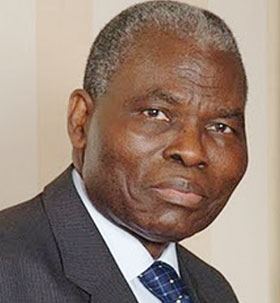Dangote Sugar Claims N7 billion in Fire Insurance
Indigenous conglomerate, Dangote Group of Companies, has notified underwriters on its insurance account to prepare to settle the over N7 billion claims that may be presented to them as a fallout of the recent fire incident at the Dangote Sugar Refinery factory.
The group’s General Manager in charge of Insurance, Mr. Raymond Akalonu, confirmed this while reviewing some catastrophic losses suffered by the industry in recent times at the just concluded 2012 annual conference of the Risk Surveyors Association of Nigeria (RISAN) in Lagos.
He also advised both risks underwriting companies and their various customers to always conduct loss prevention audit on a monthly basis to give both the insurer and the insured the much needed opportunity to assess the effectiveness of the loss prevention programmes in place. He expressed regret that the operators in the Nigerian and global insurance markets have had to cough out huge sums of money as a result of catastrophes happening across the globe. According to him, the one that affected Nigerian insurers most was the over N8 billion paid with respect to the fire incident at the Nigerian Bottling Company plat in Benin four years ago, adding that the Dangote refinery fire was another duty-call for the Nigerian insurance industry.
“In recent times, the recurring issues of fire devastation and the resultant disruption in business activities leading to losses in revenue and continuing costs are of immense concern to the business community, hence the appropriateness of this topic at this time.
“There was the fire incident at the Nigerian Bottling Company (NBC), Benin Plant in 2008, which was settled at N8.01 billion, the one in the Sugar Refinery in Kenana, Sudan in 1998, which was settled on arbitration for $108 million, and the recent fire incident in Karachi & Lahore in Pakistan that killed about 315 people and led to a colossal loss of 2 big clothing facilities.
“The recent Dangote Sugar Refinery fire incident of July 7, 2012, which underwriters have been advised to make a reserve of over N7 billion, are all cases in point. Hurricane Sandy has caused untold damages running into billions of dollars in the United States,” he said. n the way out, Akalonu advised companies and their risks underwriters to conduct loss prevention audits insured organisations monthly to provide managements with a feedback mechanism that allows prompt detection of unsatisfactory conditions and initiation of appropriate corrective actions.
He also made case for the entrenchment of a feedback mechanism in loss prevention, warning that anything to the contrary would make it impossible for the operators to tell whether programmes have been implemented as management planned. Effectiveness management of these programmes must be continuously monitored because the failure of one or more of them significantly increases the potential for loss, he stressed.
Akalonu noted that the best defence against losses is series of inter-dependent programmes created by management to identify and control fire, explosion, mechanical and electrical breakdown, and other perils, and to deal with the resulting emergency or contingency. Meanwhile, RISAN has identified some of the major challenges that its members are facing, noting that topping the list of such is the need to agree on an equitable scale of professional fees with underwriters.
In his welcome address, past President of the association, Mr. Jacob Adeosun said: “There are a number of operational challenges facing risk surveyors within the insurance industry. These include the need for RISAN and the Nigerian Insurers Association (NIA) to agree on an equitable scale of fees to resolve the existing impasse. Risk surveyors need to be appropriately remunerated to retain the services of experienced hands in the industry. “Again, on payment of survey fees as at when due; the quantum of unpaid receivables is capable of impairing the efficiency of service delivery and this is not in the best interest of anyone,” he warned.
“We have a duty to chart a new course for Nigeria through our individual actions and collective conduct. The fight against corruption, efforts to improve productivity and knowledge must be firmly rooted at individual, association and corporate levels,” he added.
Source: ThisDay









